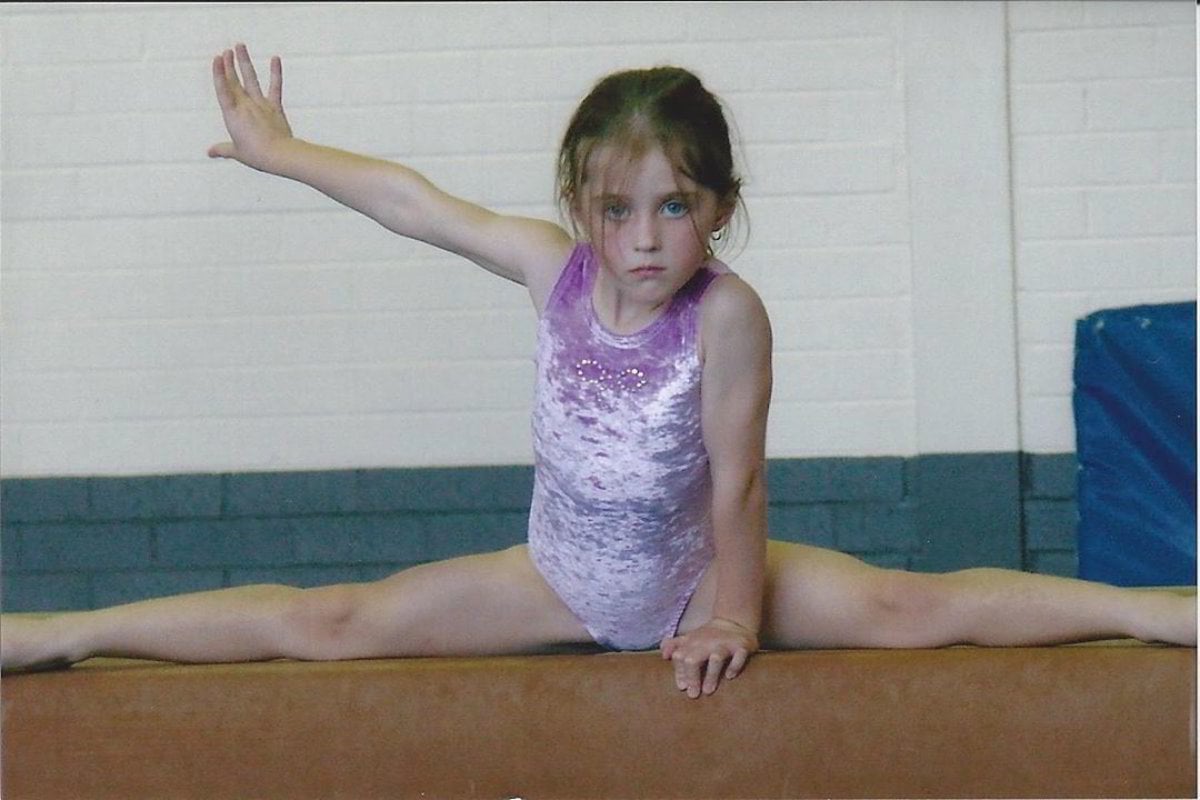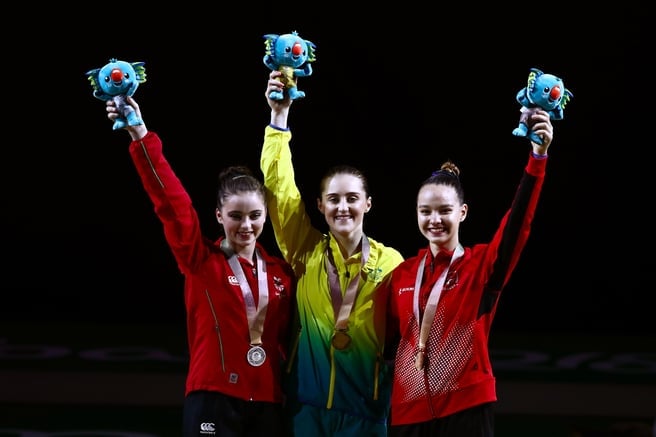
This post deals with descriptions of abuse, and issues related to eating disorders. It may be triggering for some readers.
One of Alex Eade's first memories of gymnastics has stuck with her like a birthmark – one she wishes she didn't have.
She was 12 years old and bright-eyed, travelling overseas for the first time on the Australian gymnastics team.
"It's a very daunting experience as it is," Alex tells Mamamia's daily news podcast, The Quicky.
"Then when I was in training, I had fallen off the bars and my coach yelled at me and said it was because my bum was too heavy," she remembers.
"There's nothing you can do about it. You can't go home and cry to your mum. You just have to suck it up and get on with your training.
"That's really difficult for a 12-year-old girl to go through."


Top Comments